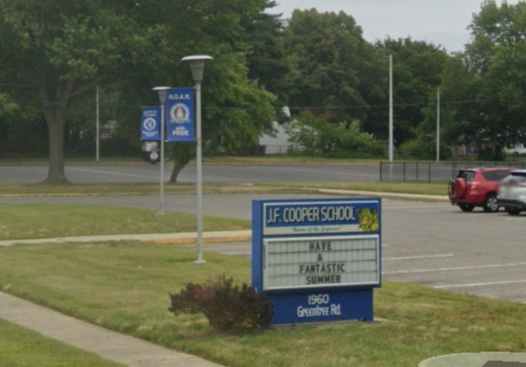
Six former students have come forward accusing the Cherry Hill school district of failing to shield them from a teacher with a reported history of sexual misconduct, according to NJ.com. These allegations, outlined in a recently filed lawsuit, claim that the district ignored warning signs about Otto Becken, a sixth-grade teacher at James F. Cooper Elementary School in the early 1980s, located at 1960 Greentree Rd, Cherry Hill Township, NJ 08003.
The legal action follows two similar lawsuits brought against the district in 2023. Attorneys representing the plaintiffs, Jeffrey Fritz and Derek Braslow, argue that the district knew Becken posed a danger to students yet failed to act. The new complaints detail disturbing accounts of abuse, which are alleged to have occurred both on school grounds and during off-campus activities, such as a week-long camping trip.
One of the initial plaintiffs, Chuck Wicker, now 54, recounted being lured into Becken’s classroom under the pretense of receiving extra reading help. According to Wicker’s complaint, the abuse began during lunch periods and escalated during the camping trip. “It took me years to come forward, but if it helps protect children in New Jersey, it will have been worth it,” Wicker said in a statement.
The lawsuits allege that school officials were aware of inappropriate behavior as far back as 1977. Records from that time show that administrators had warned Becken to maintain proper boundaries with students. Despite these warnings, no formal investigation was launched, and there were no reports filed with state authorities.
Becken, who was hired in 1970, resigned from his position in 1984 as part of an agreement with the district. Under this settlement, he forfeited his teaching certificate. Court records show that Becken was charged with multiple counts of sexual assault and endangering children in 1984 and pleaded guilty the following year. He died in 2011.
The plaintiffs’ attorneys contend that Becken’s actions were well-known among both staff and students, with one former principal noting that he had been repeatedly admonished for failing to maintain appropriate boundaries. The complaints also highlight that several boys targeted by Becken were particularly vulnerable due to language barriers.
“This is about systemic failure,” said Braslow, a Cherry Hill native and former classmate of some of the plaintiffs. He emphasized that the allegations point to a pattern of negligence by the district, which he says ignored clear warnings and failed to protect its students.
Cherry Hill school district officials have not commented on the lawsuits but denied allegations of negligence in court filings. The case continues to draw attention as more former students speak out, seeking accountability for what they describe as a profound betrayal of trust.

Survivors of teacher sexual abuse often face overwhelming challenges when deciding to take legal action, especially when institutions are involved. In a conversation, experienced New Jersey attorney Stewart Ryan explains the legal avenues available to those abused by teachers, emphasizing changes in the law that empower survivors to hold individuals and institutions accountable. Ryan also outlines the steps survivors can take to seek justice and protect future generations.
Editor Darla Medina: Mr. Ryan, thank you for joining us. With these new lawsuits arising against the Cherry Hill school district, what options do survivors of sexual abuse have if they want to hold institutions accountable for past sexual abuse?
Attorney Stewart Ryan: Survivors can take legal action through civil suits against the individuals responsible and the institutions that failed to protect them. In New Jersey, recent changes to the statute of limitations give survivors of child sexual abuse more time to file claims. This has been a significant step forward for those who may have taken decades to come forward due to the trauma they endured.
Medina: What does a survivor need to prove in these types of cases?
Ryan: In civil cases, the burden of proof is lower than in criminal cases. Survivors would need to show that the abuse occurred and that the institution or individuals involved were negligent in preventing it. For example, if there were warnings or prior incidents that were ignored, as alleged in the Cherry Hill lawsuits, that could be strong evidence of negligence.
Medina: How do settlements or court rulings in these cases impact survivors beyond financial compensation?
Ryan: It's about accountability and acknowledgment. For many survivors, having their experiences validated in a legal setting can be a critical part of their healing process. Holding institutions accountable can also lead to changes in policies and practices, which helps protect others from similar harm.
Medina: Is there anything survivors should keep in mind if they’re considering legal action?
Ryan: Absolutely. They should consult with an experienced attorney who understands the complexities of these cases. Survivors should also know they are not alone—there are resources and professionals who can support them through the legal and emotional challenges.
If your child or a family member has experienced sexual abuse by a teacher, know that you are not alone. Legal options are available to hold individuals and institutions responsible for their actions. Our team is here to provide support and guidance every step of the way. Contact us today for a free consultation and let us help you seek the justice your family deserves.
 info@legalherald.com
info@legalherald.com